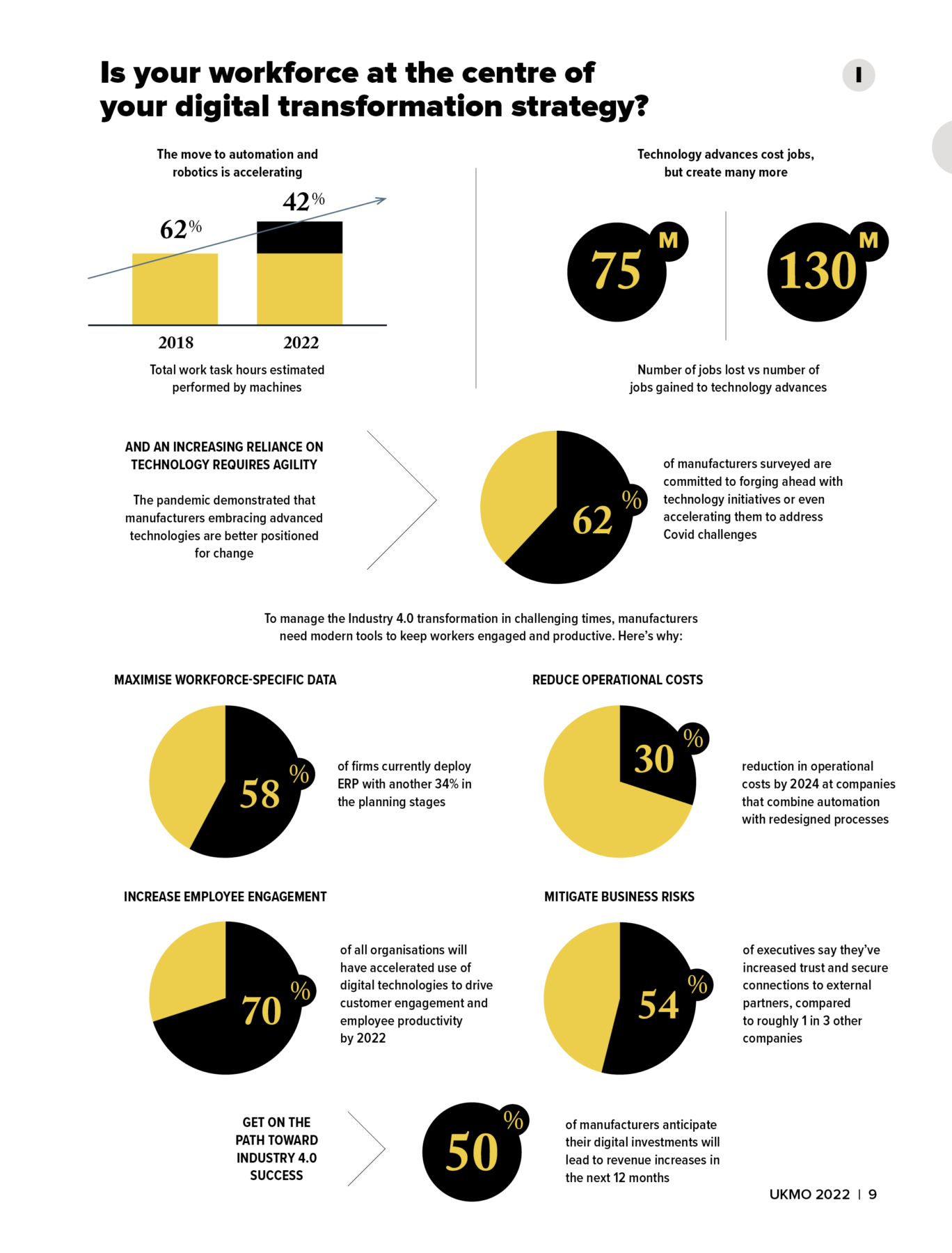Infor – Resilience is the new efficiency
Foreword: Infor
UK manufacturers have faced down some of the toughest economic headwinds on record. As they recover and reset for their own new normal, industrial businesses are re-examining their strategies with emphasis on resilience, innovation and growth.
As we continue to navigate a fundamentally changing landscape in the wake of Brexit, the pandemic and geopolitical uncertainty, resilience has overtaken efficiency as the most urgent priority facing manufacturers and their supply chains in 2022.
Long-held concepts of best practice are being torn up and rewritten for the first time in decades as the industry gets to grips with the enormity of the ramifications of the changes we’ve witnessed in recent years.
Lean, six sigma and just in time (JIT) manufacturing, the mainstays of best practice since their inception in the 1970s, suddenly seem irrelevant in addressing the kind of market dynamics we’re seeing. This is largely because such disciplines rely heavily on predictability, and only work in a world where suppliers deliver on time and in full.
Similarly, single sourcing relies upon the price efficiencies associated with volume purchasing, while outsourcing to low-cost countries ceases to be effective when distribution pricing soars and shipping availability stalls.
With these rules of the supply chain being re-drawn, winners are those who have been able to rapidly adjust their supply chain strategies to accommodate the succession of shocks.
It’s no secret that digital is crucial in underpinning the scale of change necessary and building truly resilient supply chains. But its potential is yet to be fully understood, and to drive genuine transformation it must extend way beyond automation and reporting.
While many systems currently allow one up, one down visibility, to view the next supplier in the supply chain and customer, this simply doesn’t go far enough. A digital supply chain can facilitate a level of visibility and collaboration across the entire supply chain.
This in turn enables manufacturers to react and act in the moment, based on a comprehensive picture of events, crucially, before their competitors do. In practice this means a shipment could be re-routed or supply secured from an alternative source, or indeed customer expectations can be managed to avert penalties.
Cloud is no longer optional as powerful analytics and AI come into play and collaborative platforms to fulfil ambitions. It is only through such platforms that the industry can foster the kind of insights from which to inform risk analysis, drive foresight and optimise opportunity.
Whether these relate to launching new products and services or adjusting to a
near-shoring or peer-shoring model, having the right platform at the helm will undoubtedly fuel competitive advantage across what will likely be a very interesting decade for UK manufacturers.



